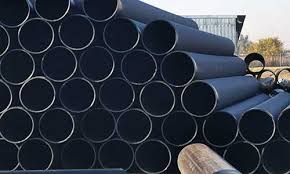Dec . 19, 2024 08:40 Back to list
cpvc pipes
Understanding CPVC Pipes A Comprehensive Guide
CPVC pipes, or Chlorinated Polyvinyl Chloride pipes, have become a popular choice in various plumbing and construction applications. Known for their durability, flexibility, and resistance to corrosion, CPVC pipes present a robust solution for conveying fluids in residential, commercial, and industrial settings. This article delves into the composition, benefits, applications, and installation considerations associated with CPVC pipes.
What Are CPVC Pipes?
CPVC is a thermoplastic material produced by the chlorination of polyvinyl chloride (PVC). This process enhances the thermal stability of the pipe, allowing it to withstand higher temperatures than standard PVC. CPVC pipes are characterized by their yellow or cream color and are primarily used for hot and cold water distribution in plumbing systems. They are also utilized in industrial applications, chemical processing, and fire suppression systems.
Benefits of CPVC Pipes
1. Temperature Resistance CPVC pipes can handle temperatures up to 200°F (93°C) without deforming. This makes them suitable for transporting hot water and steam, which is particularly useful in residential plumbing and HVAC systems.
2. Corrosion Resistance Unlike metal pipes that can rust or corrode over time, CPVC pipes are resistant to corrosion caused by chemicals and acidic substances. This property ensures a longer lifespan and reduced maintenance costs.
3. Chemical Resistance CPVC pipes are capable of withstanding a variety of chemicals, making them ideal for industrial applications where aggressive fluids are involved.
4. Ease of Installation CPVC pipes are lightweight and easy to handle, making installation straightforward. They can be easily cut and joined with solvent cement, which not only speeds up the installation process but also ensures strong joints that do not leak.
5. Low Thermal Conductivity The low thermal conductivity of CPVC helps in preventing heat loss during the transport of hot water, resulting in energy savings and improved efficiency for heating systems.
6. Cost-Effectiveness Given their longevity and reduced maintenance requirements, CPVC pipes provide a cost-effective solution over the long term. Although the initial investment may be higher than some other materials, the durability and performance justify the cost.
Applications of CPVC Pipes
CPVC pipes are versatile and can be applied in various settings
cpvc pipes

- Residential Plumbing CPVC is commonly used for both hot and cold water lines in homes. Its ability to handle high temperatures makes it ideal for hot water systems, including water heaters and boiler connections.
- Commercial Applications Businesses often use CPVC pipes for water supply lines, sprinkler systems, and in laboratories where chemical handling is required.
- Industrial Use In industrial settings, CPVC pipes are employed for transporting water, chemicals, and other fluids. Their resistance to corrosion and chemicals makes them a preferred choice in factories and processing plants.
- Fire Protection Systems CPVC is also widely used in fire sprinkler systems due to its ability to withstand high temperatures and its flame-retardant properties.
Installation Considerations
When installing CPVC pipes, several factors must be taken into account
- Temperature and Environment CPVC pipes should be stored and installed in environments that are not excessively hot or cold. Extreme temperatures can affect the piping’s performance.
- Proper Jointing Techniques To ensure a leak-free system, it is crucial to follow manufacturer guidelines for pipe and fitting preparation and the application of solvent cement.
- Support and Spacing Adequate support must be provided to prevent sagging or displacement of the pipe. Spacing between hangers or supports should align with industry standards.
- Expansion and Contraction Like all thermoplastics, CPVC can expand and contract with temperature changes. Proper allowances for thermal expansion should be included in the design of the plumbing system.
Conclusion
CPVC pipes are a reliable choice for various plumbing and industrial applications due to their durability, resistance to chemicals and corrosion, and ability to handle high temperatures. While their initial installation may require careful consideration of various factors, the long-term benefits and cost savings make them a practical solution for modern plumbing needs. Whether in residential homes or industrial facilities, CPVC pipes continue to prove their worth as a versatile and effective piping option.
-
High-Quality PVC Borehole Pipes Durable & Versatile Pipe Solutions
NewsJul.08,2025
-
High-Quality PVC Perforated Pipes for Efficient Drainage Leading Manufacturers & Factories
NewsJul.08,2025
-
High-Quality PVC Borehole Pipes Durable Pipe Solutions by Leading Manufacturer
NewsJul.08,2025
-
High-Quality PVC Borehole Pipes Reliable PVC Pipe Manufacturer Solutions
NewsJul.07,2025
-
High-Quality UPVC Drain Pipes Durable HDPE & Drain Pipe Solutions
NewsJul.07,2025
-
High-Quality Conduit Pipes & HDPE Conduit Fittings Manufacturer Reliable Factory Supply
NewsJul.06,2025

